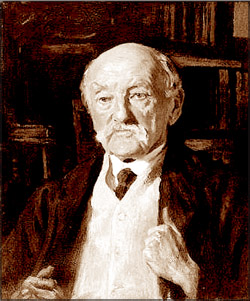|
English Literature made easy - Poetry
GCE O/L - New syllabus
Paying calls by Thomas Hardy
"Hardy was remarkably gifted with the ability
to make the rhythm of the speaking voice balance against the patterns of
metre and rhythm so as to bring out the meaning" (Angela Hussain) "The
contrasting sounds to suit the meaning".
Thomas
Hardy was born in Wessex in England in 1840. In this poem 'PAYING CALLS'
he describes a visit he made to the cemeteries in the village to show his gratitude by recalling
to the days he spent with them. Hardy moves his reader in such manner so
as to "feel what he wants us to".
made to the cemeteries in the village to show his gratitude by recalling
to the days he spent with them. Hardy moves his reader in such manner so
as to "feel what he wants us to".
Most of his achievements come from his own "experience drawn from
real life" Giving more than its "literal meaning". "Hardy was remarkably
gifted with the ability to make the rhythm of the speaking voice balance
against the patterns of metre and rhythm so as to bring out the meaning"
(Angela Hussain) "The contrasting sounds to suit the meaning".
Rhythm and rhyme of the speaking voice is clearly presented in his
poem PAYING CALLS. His visit to the cemetery in the village to bestow
his sincere wishes to friends and relations dead and gone. His long
walk, though strenuous gave him much pleasure by recalling to the days
he spent with them when they were alive.
Turning to all the monuments raised in memory of each one, the poet
reveals his sincere feelings, his relationship with these dear ones, now
lying still, motionless, benefit of sight and feeling.
"I spoke to one other of them" "By mound and stone and tree" "But
they spoke NOT TO ME".
The poet expresses his genuine feelings in a forceful manner,
comparing and contrasting the present and the past in a touching manner.
"BUT THEY SPOKE NOT TO ME" The word "BUT" carrying the strongest
expression consisting of rhyme and rhythm that heighten the innocuous
and sincere feelings of the poet, maintaining his disciplined and
sincere affection to his dear ones dead and gone.
Hardy's simple and striking diction style highlighting his ability to
use 'SPOKEN IDIOM'. The simple but effect of the ideas expressed
recalling to memory the dear ones dead and gone.
This poem mirrors forth the sincere feelings of the speaker bestowed
with humanity and kindness. Though the poet does not present a
lamentation but reserving his sensitivity he has expressed his genuine
feelings with extreme faith in humanity. The speaker or the hero in the
poem is made to remain in a quiet and inconspicuous manner; yet inviting
the affection to the dear ones, dead and gone.
Although the hero in the poem appears to be sensitive he has managed
to keep himself sober Thomas Hardy does not present a passionate
expression of his sadness but remains quiet and inconspicuous
highlighting the main character of the poem.
The simple diction style of the poet consisting of 'SPOKEN IDIOM' is
quite appealing with the rhyme and rhythm highlighting the humankindness,
faith and goodwill of the speaker appreciating his dear ones though dead
and gone.
C. Ekanayake,
Retd Specialist Teacher Eng. |
